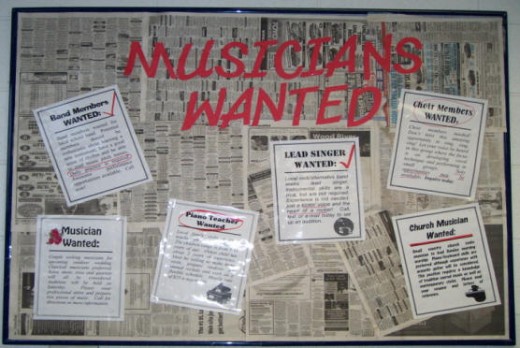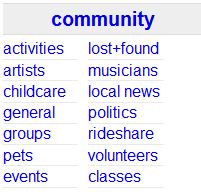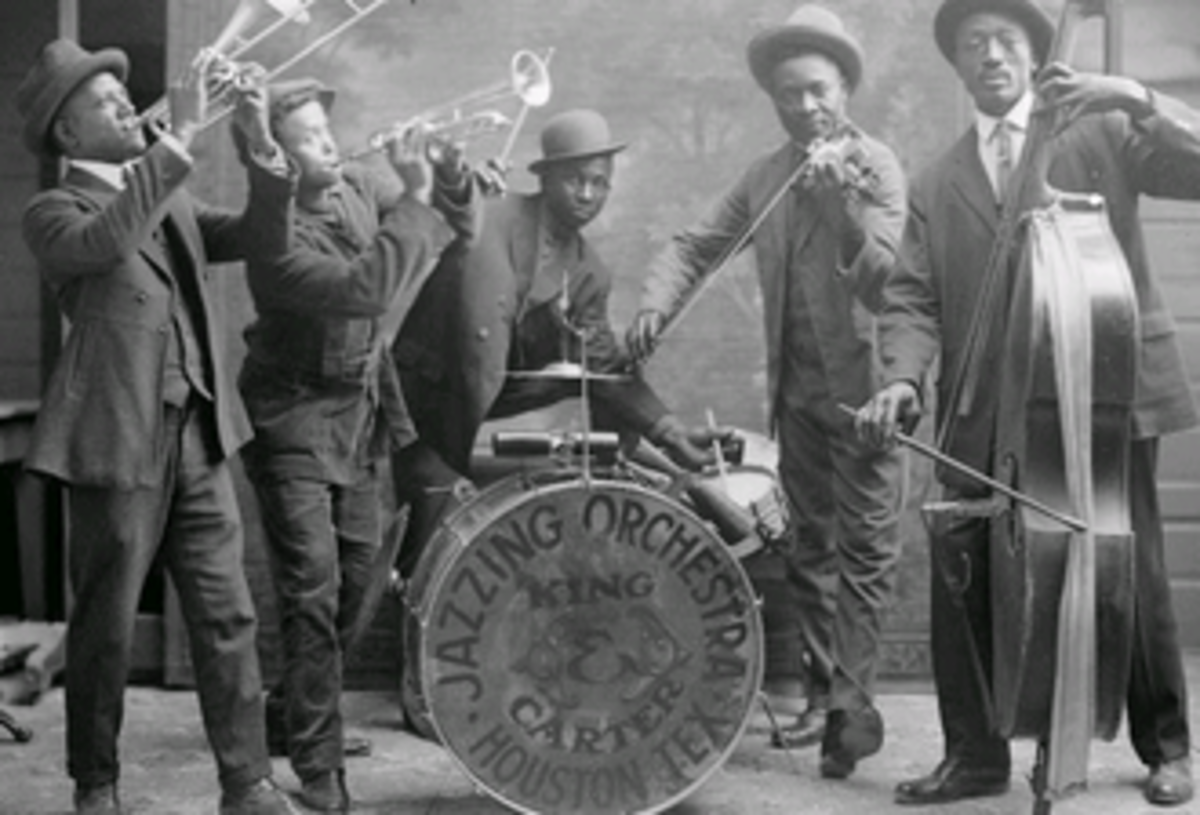Starting a Band: What Every Beginner Should Know (Part One)

So You Want to Start a Band?
You've spent some time and money learning how to sing or play an instrument. You've had fun with the process and made a lot of progress on your own, and now you've come to the realization that it's time to take the next logical step: collaborating with others on a musical project.
The prospect of getting a bunch of players together and learning some songs or writing new ones seems so exciting! You're energized, motivated and confident. What can possibly go wrong?
First, the bad news: starting a band can be one of the most frustrating experiences of your life. There's a very good chance that even if your musical vision is clear, you're going to have to compromise to some degree. In order to get a functioning band together, you'll have to interview and work with people whose ambitions and motivation level will not match yours. There will be times when you've put what feels like a lot of work, only to find out that you have much further to go to achieve what feels like real progress. And, of course, putting yourself out there in front of other people--whether it be via a live show, a recording of your work, or even an ad seeking other musicians--takes a lot of guts, and this risk isn't always rewarded accordingly.
So why would anyone want to start a band in the first place?
Well, here's the bright side: starting a band can be one of the most rewarding experiences of your life. You just have to approach it the right way.
In this article, I'm going to give you some information based on my own past experience that I hope will help you avoid making the most common mistakes committed by musicians who are seeking the thrill of playing in a band. These errors aren't just made by newbies, either: I've personally known older, very experienced musicians. The key is being able to identify these pitfalls before they happen, and do your best to sidestep them.
Step One: Know Your Role
This step doesn't refer to knowing what you'll do in the band--chances are, if you're reading this, you already plan to be the singer, the guitar player, the DJ, or whatever.
Moving past that more obvious aspect, the first thing you need to be aware of before you even consider starting a band is what you want to achieve with your project. Another way of saying this is to ask yourself, "What is my goal?"
Identify clearly what you hope to make happen. If you're a young singer who hopes to start a rock band that is playing stadiums in ten years, that's fine. If you're a middle-aged guitarist who has been taking lessons for years and you would like to start a blues group to jam at your local bar once a month, that's also great. The key here is knowing where you'd like to end up so that you can quantify two crucial aspects of getting things going:
- How much time, effort and money you're willing to invest in getting where you want to be.
- You can search for people with similar goals and motivation levels.
The importance of knowing these two pieces of information can't be overstated. There are few things as frustrating as putting a group together, spending months or even years writing, rehearsing, and recording material... only to watch the wheels fall off as you get close to the finish line because one or two band members "suddenly" decide that they're not happy with the direction things are moving in. Chances are, if everyone in the band had been upfront at the very beginning about what they wanted to do, they wouldn't be having this problem now.
Relevant tips:
- Don't join a band that doesn't have the same goals as you, and don't work with another musician who doesn't harbor the same ambitions. If you're a singer whose heart is set on making a living from your music but you're working with a guitarist who is not in a position to give up his day job in pursuit of playing music full-time, you're going to have conflict eventually.
- Be upfront with your bandmates about your goals. If everyone in the band is aware of what everyone else is looking to get out of the project, then in situations where decisions or opportunities present themselves, it should be easy to agree on what to do.
- Be willing to compromise to some extent. It's very rare that you meet two to five other musicians who have the exact same musical taste and goals as you do. If you can assemble a team of people whose ambitions and ideas at least somewhat match your own, and you're all mature and open-minded enough to try to pull the cart in the same direction, then friction will be minimal.
Step Two: Put It In Writing
So you've decided what your goals are for getting into a band, whether it be just having fun jamming in the garage on weekends or trying to score an opening gig on an arena tour. Now, how do you efficiently go about finding other musicians? A great place to start is to write an advertisement.
What should you put in your ad?
- State upfront exactly what your goals are. Keep it at least somewhat realistic so you don't scare off good candidates--if you're aiming for world domination, a better way of saying that is "I'd like to make music my career, eventually".
- Be specific about positions you'd like to fill. Don't say something vague like, "I need three musicians to start a blues band," because you could end up with three harmonica players and nobody to handle drums, guitar, bass or vocals. State clearly who you'd like to hear from.
- Adding a little additional information about yourself and your experience is good. It gives others an idea of where you're at, and what you bring to the table. Don't go overboard, though. If you're not already famous and/or successful, nobody wants to read a multi-paragraph biography detailing your every last achievement to date.
- A short list of influences may be beneficial, if you're pursuing a specific sound. But if you're open-minded, your ad will get more responses. Therefore, if you include such a list, be sure to also state that you're willing to incorporate others' ideas.
- End your ad with a call to action, and give the reader one or more methods to contact you. Invite people to contact you if your ad sounds good, and give them a phone number or an email address where they can reach you. Do NOT, however, give out any information you wouldn't want a stranger to have!
Based on the above information, a good example of a "musicians wanted" ad might look like this:
I'm a 25-year-old bass player looking to start a jazz band to play local at events and functions for some extra cash. I would like to find a pianist, a drummer and a singer.
I've been playing in bands for 8 years and have experience in clubs and bars. I have done some recording in small studios. My major influences are Charles Mingus and Jaco Pastorius, but I'm happy to collaborate in finding a direction that makes everyone in the band happy.
If this is the kind of project you'd like to join, please call me at (555) 555-5555 or email me at someaddress@email.com. Thanks for reading!
It's that easy! Keep your text simple and to the point.


Step Three: Get The Lead Out
You've identified your goals clearly and you've written a concise yet compelling advertisement recruiting fellow musicians. Now how do you get it in front of the target audience? Well, as in all forms of marketing, think about your target audience: musicians who are looking for a gig. Where are they likely to go on a frequent basis, both in their day-to-day lives and online?
Posting your ad in local music stores and on musicians' classified websites are the two easiest and most common ways to start drumming up some interest.
Let's start with the process for advertising in stores.
- Do a Google search for the names of instrument stores in your town or city, then print up paper copies of your ad.
- Bring a copy (you don't need more than one) to each store and check to see if they have a bulletin board with "musicians wanted" ads or gig flyers posted.
- If they do--and this step is critical--find someone who works there, and ask them if you can post yours, as well.
- If you fail to obtain permission from the store, there's a good chance your ad will get yanked down before anyone gets a chance to see it. Find out what the store's policy is and post new, updated ads whenever it's appropriate to do so.
- Take a minute and read the other ads while you're there. A great band could be looking for someone who does exactly what you do!
Next, let's move on to online advertising.
- There are several websites that musicians use to search for potential bandmates. You can do a Google search for locally-based forums and message boards, but the most commonly-used national pages are Craigslist.org (look under the "Community" header; there should be a link that says "Musicians" below) and Bandmix.com.
- Craigslist has its own terms of service and often a number of regular users who scour the ads posted there on a regular basis. It has its own social conventions but you won't fall afoul of anyone's standards if you use the same basic content you created in Step Two (see above).
- Bandmix.com and websites like it require you to start a profile in order to post musicians wanted ads. These profiles take longer to fill out, but they allow you to include more detail than is wise to put into a print or Craigslist ad. Take advantage of this, but don't go overboard. Put up a few pictures if you have them, and post any (decent) recordings you may have of songs you wrote or have covered.
- Search the existing ads to see if anyone is looking for someone who does what you do. You may find a band worth contacting, or perhaps one or more possible collaborators with whom you could join forces.

Step Four: Circulate
While advertising is a great way to reach a wider audience, never underestimate the power of personal connections. The truth is, you're going to have to form a bond of some sort with prospective band members somewhere down the line anyway--why not practice the art and see if doing so will get you closer to the goal of starting a musical project?
In other words, get out there and network. Find other musicians with common interests and goals by meeting and talking to them. A great way to do this is to make friends with other musicians, even if they're already in a band and aren't looking for another project--they may know someone who is searching for their next gig.
So how do you go about befriending active musicians?
- Go to places where musicians are likely to hang out, and strike up a conversation. Visit local instrument stores frequently, and chat about gear with a stranger. Check out an open mic night at a nearby club, and talk to anyone whose performance you enjoy. Go to a popular local band's next show and hang out near the stage--or the bar--and eavesdrop a little. If someone mentions music you like or, even better, the fact that they're looking to start or join a group, introduce yourself.
- If you're invited to a party, find out of there will be music involved. If a band is going to play, for example, ask if you can bring an instrument and sit in. Or if there are no plans to have live music, inquire as to whether the host would like you to provide some entertainment and tell them to put the word out to guests that they should bring instruments for a jam session.
- Take a trip to a local record store. Not the barely-organized CD section of the nearest Walmart, an actual music store--and take the time to browse around. Talk to the staff and ask for recommendations, and see where the conversation takes you. You might find that they or their friends are looking to get involved with a new project.
Once people get to know you and the word gets out that you're looking to start a band, it's only a matter of time before candidates will start to seek you out.
So Far, So Good!
You've taken your first steps toward defining your intentions and making them known to others. Now, it's just a matter of time before you get some responses to your advertisement(s), or until your networking pays off and you meet some people who are willing to get started with you. What then?
Well, we'll look into the next few steps and some more mistakes you can easily avoid in the next installment of this series!








